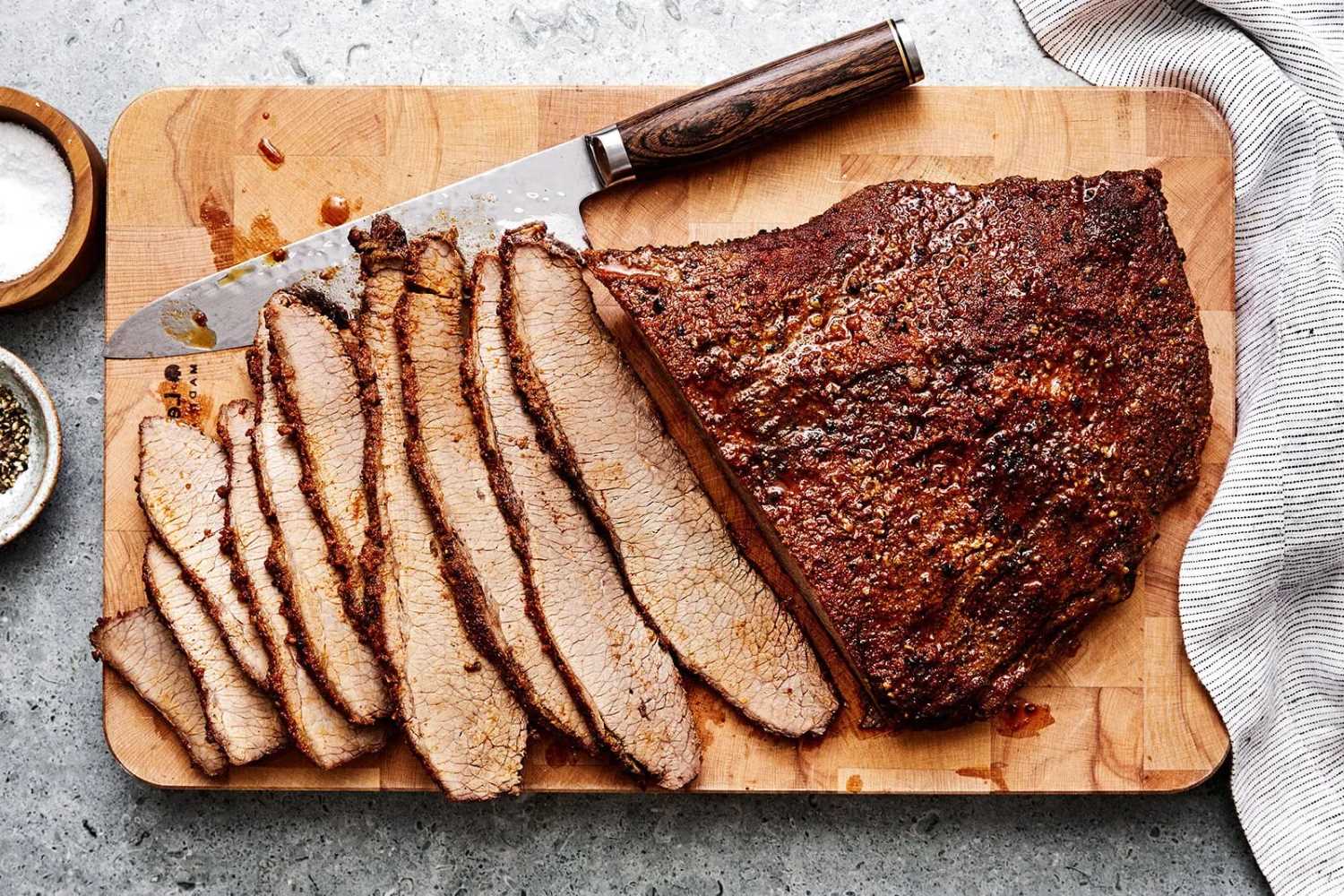
Ever wondered why your taste buds start dancing at the mention of brisket? Or why May 28th feels like a holiday in the world of barbecue enthusiasts? National Brisket Day is the reason, and boy, do we have some juicy facts to share! From its humble beginnings to becoming a centerpiece at gatherings, brisket has a story that's as rich and flavorful as its taste. Whether you're a pitmaster or just someone who appreciates a good slice of meat, these facts about National Brisket Day will surely add more sizzle to your celebration. Ready to beef up your knowledge? Let's dive into the smoky world of brisket and discover why this day deserves a spot on your calendar!
Key Takeaways:
- National Brisket Day celebrates the flavorful and versatile beef cut, encouraging people to explore different cooking methods. It has deep roots in various cultures and offers nutritional benefits when consumed in moderation.
- Celebrate National Brisket Day by hosting a barbecue, trying new recipes, and exploring its significance in Jewish, Texan, and Korean cuisines. Indulge in this delicious cut of meat while learning about its rich history.
What is National Brisket Day?
National Brisket Day, celebrated on May 28th, is a day dedicated to appreciating one of the most flavorful and versatile cuts of beef. Brisket, known for its rich taste and tender texture when cooked properly, has a special place in culinary traditions around the world, particularly in barbecue.
-
Brisket is a cut of meat from the breast or lower chest of beef or veal. The beef brisket is one of the nine beef primal cuts, though the precise definition of the cut differs internationally.
-
This day encourages people to explore various cooking methods such as smoking, braising, or slow-cooking to bring out the best in brisket's flavor and texture.
The Origins of Brisket Cooking
Brisket has been a staple in diets for centuries, with its origins deeply rooted in ancient cooking traditions.
-
Historically, brisket was considered a less desirable cut of meat due to its toughness. This perception changed as cooking techniques evolved, showcasing brisket's potential for tenderness and flavor.
-
In many cultures, brisket is traditionally cooked during special occasions and holidays, especially in Jewish, Texan, and Korean cuisines, each bringing their unique flavors and cooking methods to the table.
How to Celebrate National Brisket Day
Celebrating National Brisket Day can be as simple or elaborate as you choose. Here are some ideas to get you started.
-
Hosting a barbecue is a popular way to celebrate. Invite friends and family over for a day of grilling and enjoying brisket in various forms, from sandwiches to tacos.
-
Trying out new brisket recipes can also be a fun way to mark the occasion. Look for recipes that use different spices or cooking techniques you haven't tried before.
Brisket in World Cuisines
Brisket holds a special place in many world cuisines, each offering a unique take on this versatile cut.
-
In Jewish cuisine, brisket is often slow-cooked as part of holiday meals, especially during Passover and Rosh Hashanah, where it's served tender and juicy with a variety of sides.
-
Texas barbecue is famous for its smoked brisket, characterized by a flavorful crust known as the "bark," and a tender, melt-in-your-mouth interior.
-
Korean cuisine features brisket in dishes like bulgogi and in hot pots, where it's thinly sliced and quickly cooked, highlighting its delicate flavor.
Health Benefits and Nutritional Facts
While brisket is indulgent, it also offers nutritional benefits when consumed in moderation.
-
Brisket contains high levels of protein, essential for muscle repair and growth. It's also a good source of iron, which helps in transporting oxygen throughout the body.
-
Despite its fat content, brisket contains monounsaturated fats, which are considered healthier fats that can support heart health when eaten in moderation.
Celebrating National Brisket Day is a perfect opportunity to indulge in this delicious cut of meat while exploring its rich history and cultural significance. Whether you're a brisket aficionado or new to its delights, there's no better time to enjoy this culinary favorite.
A Final Slice on National Brisket Day
National Brisket Day on May 28th serves up more than just a delicious meal; it's a celebration of culinary tradition, community, and the art of slow cooking. This day isn't just for barbecue enthusiasts but for anyone who appreciates the dedication behind crafting mouthwatering dishes. From its humble beginnings to becoming a centerpiece at gatherings, brisket tells a story of transformation through patience and skill. Whether you're firing up the grill or enjoying someone else's cooking, remember, every slice of brisket carries with it centuries of history and a piece of cultural heritage. So, let's honor this special day by sharing meals, creating memories, and maybe even experimenting with our own brisket recipes. Here's to making every bite count!
Frequently Asked Questions
Was this page helpful?
Our commitment to delivering trustworthy and engaging content is at the heart of what we do. Each fact on our site is contributed by real users like you, bringing a wealth of diverse insights and information. To ensure the highest standards of accuracy and reliability, our dedicated editors meticulously review each submission. This process guarantees that the facts we share are not only fascinating but also credible. Trust in our commitment to quality and authenticity as you explore and learn with us.
